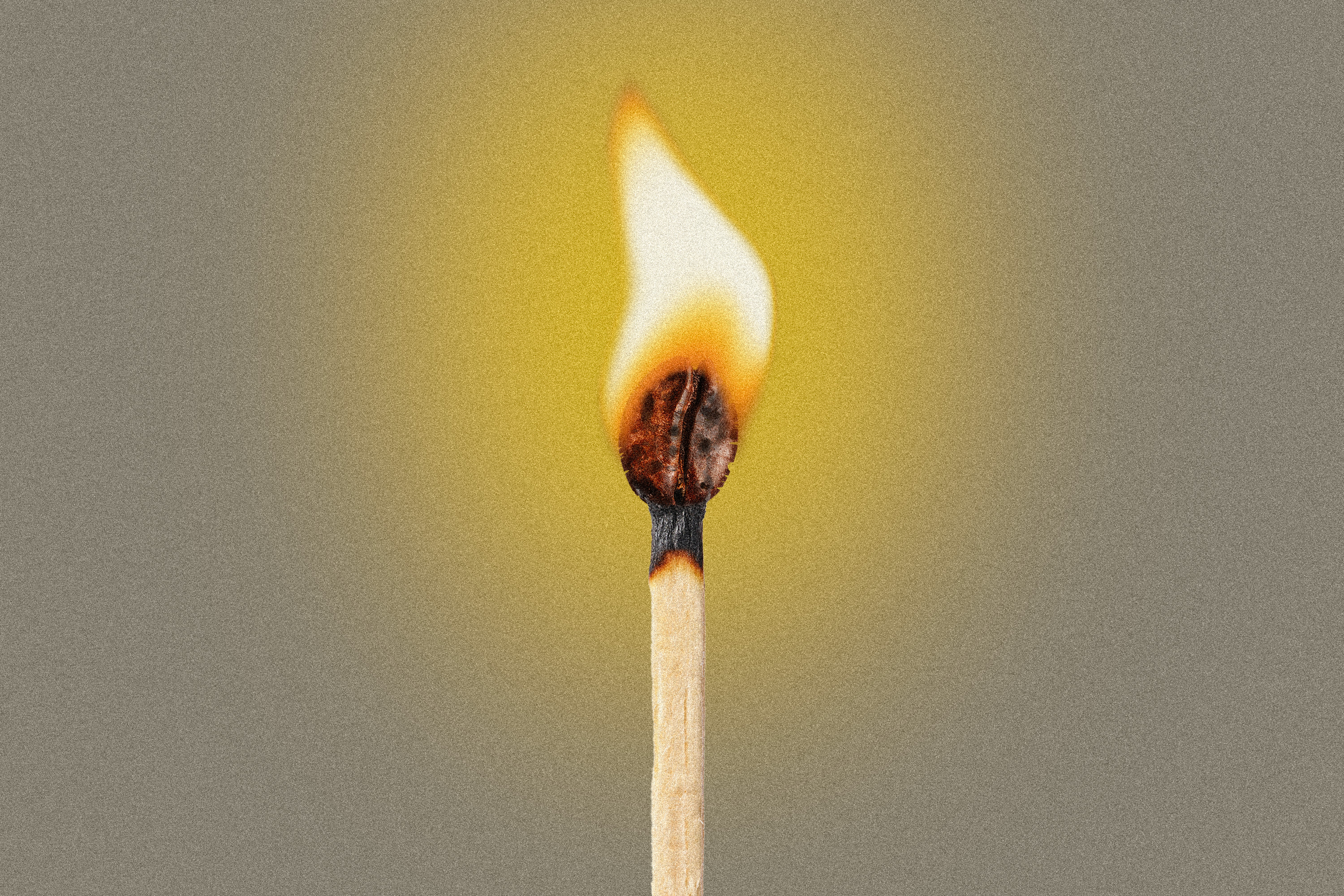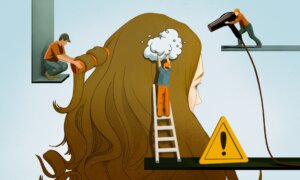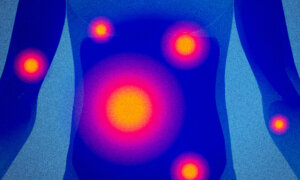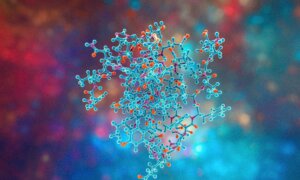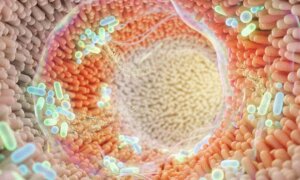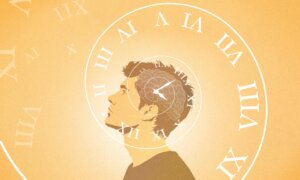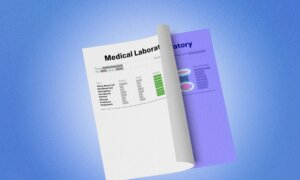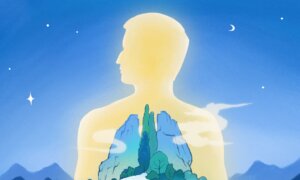Every morning, most Americans reach for that steaming cup of coffee, believing it is their lifeline to alertness and productivity. However, the daily caffeine fix is more of a clever illusion than a genuine energy booster.
When you drink coffee, you are actually borrowing energy from your body’s future reserves.
How Caffeine Keeps You Energized
“Caffeine is generally a brain stimulant,” said Edward Giovannucci, professor of nutrition and epidemiology at the Harvard T.H. Chan School of Public Health.
In its pure form, this purine alkaloid appears as a bitter, white powder. Besides coffee beans, caffeine is found in more than 60 plants around the world, including tea leaves, guarana berries, and cacao beans.
Caffeine counteracts a molecule in the body called adenosine, which makes us sleepy, Giovannucci told The Epoch Times.
Adenosine levels in the brain are low when we wake up but gradually accumulate throughout the day. As adenosine increasingly binds to its receptors, it signals the brain that rest is needed, causing us to feel drowsy. During sleep, adenosine is cleared, and this cycle repeats. Insufficient sleep leads to a buildup of adenosine and increased receptor sensitivity, which explains the grogginess and sluggishness often experienced after a restless night.
Caffeine has a structure similar to adenosine, allowing it to block adenosine from binding to its receptors and take its place. This prevents the brain from receiving drowsiness signals, effectively muting the tiredness noise.
Adenosine not only signals drowsiness, but also suppresses brain cell activity. When caffeine blocks adenosine, it indirectly stimulates the central nervous system. It triggers the release of various biochemicals—including dopamine, glutamate, epinephrine, norepinephrine, and cortisol—resulting in enhanced alertness, mood, and cognitive function.
A 2020 meta-analysis involving multiple studies indicated that caffeine intake can somewhat enhance cognitive, work, and driving performance in sleep-deprived individuals.
The feeling of an energy boost from drinking coffee is real, Cindy Chan Phillips, a registered dietitian, told The Epoch Times.
In addition to boosting energy, caffeine can enhance physical strength and sport-specific performance. A randomized controlled trial found that athletes who consumed coffee could use and metabolize oxygen more efficiently, increasing their maximal heart rate and oxygen uptake. A review by the International Society of Sports Nutrition reported that consuming 3 to 6 milligrams of caffeine per kilogram of body weight enhances muscle endurance, strength, and aerobic capacity. Similarly, a 2022 systematic review showed that caffeine consumption extended runners’ endurance by 17 percent and improved their running speed compared with those who did not consume caffeine.
Borrowed Energy
The energy boost caffeine provides is fundamentally the result of reduced fatigue signals rather than a direct increase in energy levels, Mary Curristin, a nutritionist and health coach at ART Health Solutions, told The Epoch Times.
Food provides energy, but caffeine does not. A cup of black coffee contains fewer than five calories, and the energy it provides is essentially borrowed from the body.
Caffeine keeps you alert by blocking adenosine, but “it is temporary,“ said Melissa Ann Prest, a registered dietitian with a doctorate in clinical nutrition from Rutgers University. Rather than eliminating the adenosine that causes fatigue, caffeine merely masks its presence in the body for a short time. Once the effects of caffeine wear off, the accumulated adenosine floods the body with drowsiness signals, a phenomenon often referred to as ”caffeine crash.”
Regular caffeine consumption increases the number of adenosine receptors in the brain, making the body less sensitive to caffeine, meaning it requires more caffeine to achieve the same effect.

Caffeine has a molecular structure very similar to adenosine—a sleep-inducing molecule—allowing it to block adenosine from binding to its receptors and take its place. Once the effects of caffeine wear off, the accumulated adenosine floods the body with drowsiness signals. (Illustration by The Epoch Times, Shutterstock)
Overreliance on caffeine can contribute to adrenal fatigue.
Under normal stress, the body enters a “fight-or-flight” response, during which the adrenal glands release stress hormones such as cortisol and adrenaline. Excessive caffeine intake has a similar effect.
A clinical trial published in Pharmacology Biochemistry and Behavior found that caffeine intake can increase stress hormone levels in the body, even at rest.
The adrenal glands become overworked when stress hormone levels remain elevated, potentially leading to adrenal fatigue, Curristin said.
Dr. Kevin Scheepers, a doctor of integrative and functional medicine, told The Epoch Times that excessive caffeine consumption can make the body reliant on it to boost dopamine and adrenaline levels. Abruptly cutting off caffeine consumption can trigger a “coming down” feeling, resulting in fatigue and even depression. A drop in dopamine may lead to withdrawal symptoms, including headaches, fatigue, and irritability, Curristin said.
Drinking too much coffee can also interfere with the body’s resource allocation. It directs energy toward heightened alertness rather than long-term repair, potentially impairing muscle recovery, weakening immune response, and reducing sustained energy supply during endurance activities—particularly in individuals sensitive to caffeine. Consuming caffeine later in the day can lower sleep quality, hindering cellular repair and increasing long-term health risks.
“Caffeine does not ‘give’ you energy; it borrows from your future energy reserves and thus is a drain on the body,” Dr. Rachel Carlton Abrams, a family practice physician who is also board-certified in holistic medicine, wrote in her book “BodyWise.”
Overreliance on caffeine is “not sustainable” without proper nutrition, sufficient rest, and general good health, Curristin said.
The Hidden Cost
In addition to external stimulants such as caffeine, the body produces its own natural, stimulant-like hormone: cortisol.
Cortisol is an integral part of our biological clock. Upon waking, cortisol levels rise and peak within about an hour before gradually declining throughout the day. This morning surge in cortisol helps us feel alert and prepared to take on the day.
If people heavily rely on coffee to start their mornings, this artificial stimulant can interfere with cortisol’s natural function, Phillips said. Many of her clients struggled with taking forever to get going, and a sluggish circadian wake-sleep cycle was the common factor.
Having another cup of coffee later in the afternoon (around 3 or 4 p.m.) can also disrupt the circadian rhythm and energy levels.

If people heavily rely on coffee to start their mornings, this artificial stimulant can interfere with cortisol’s natural function. (Stefania Pelfini, La Waziya Photography/Getty Images)
“The caffeine actually may stay in your system longer than you realize,” Phillips said. Poor sleep at night can leave us feeling groggy the following day, leading to increased coffee consumption to stay awake.
“For most people, the best time to drink coffee is in the morning, around 9:30 to 11:30 a.m.,” Curristin said.
During this time, the body’s natural cortisol levels begin to drop, making it an ideal window for caffeine to avoid disrupting the body’s natural morning energy peak. Generally, one or two cups of coffee are sufficient to enhance focus and energy.
Phillips suggested delaying coffee consumption to about an hour after waking—typically around the time people arrive at the office—to better align with the body’s natural rhythms and support cortisol’s normal function. For those who prefer drinking coffee right after waking, she recommended starting with half a cup and saving the other half for later. Additionally, finishing the last cup by 2 p.m. is recommended for individuals sensitive to caffeine.
A Medical Concern
“If you find yourself needing more coffee to maintain your energy levels, it is a sign that your body is developing a dependence,” Phillips said.
Caffeine dependence is regarded as a clinical disorder. The American Psychiatric Association’s Diagnostic and Statistical Manual of Mental Disorders, Fifth Edition, includes nine diagnostic criteria for caffeine use disorder, with the following three being particularly significant:
- “A persistent desire or unsuccessful efforts to cut down or control caffeine use.”
- “Continued caffeine use despite knowledge of having a persistent or recurrent physical or psychological problem that is likely to have been caused or exacerbated by caffeine.”
- “The characteristic withdrawal syndrome for caffeine” or “caffeine (or a closely related substance) is taken to relieve or avoid withdrawal symptoms.”
One example of continued caffeine use despite knowledge of it causing harm is a study of pregnant women who had been advised to quit caffeine during pregnancy. Forty-three percent of women who met the criteria for caffeine dependence continued to consume caffeine at unsafe levels. The reasons given for their failure to cut back on caffeine included severe withdrawal symptoms, functional impairment, and cravings as reasons they continued to use the substance.
The Optimal Dose
The caffeine content in a cup of coffee is roughly 100 milligrams.
However, the exact amount can vary depending on the coffee’s origin, composition, brewing method, and concentration.
A single shot of espresso in the United States is usually 1 ounce and contains about 63 milligrams of caffeine on average. But this can vary widely. For instance, caffeine levels in Starbucks espresso are often higher, nearing 100 milligrams per ounce. Moreover, a 2011 study from Glasgow, Scotland, found larger espresso sizes of 43 milligrams to contain 140 milligrams of caffeine per serving on average.
Notably, typical 12-ounce soft drink cans contain 23 to 83 milligrams of caffeine, with most colas containing 36 to 70 milligrams.
Some energy drinks have even higher caffeine content, with a single bottle or can exceeding 350 milligrams.
Many prescription and over-the-counter medications for headaches, colds, asthma, appetite control, and fluid retention may also contain caffeine, with amounts ranging from 16 to 200 milligrams per tablet.
The Dietary Guidelines for Americans recommend limiting daily caffeine intake to no more than 400 milligrams, roughly equivalent to three to four cups of coffee per day.
This guideline is not a one-size-fits-all recommendation.
Lina Begdache, a registered dietitian and associate professor in the Health and Wellness Studies Division at Binghamton’s Decker College of Nursing and Health Sciences, told The Epoch Times that some people are more sensitive to caffeine. Similarly, Scheepers said that “everything in moderation” is key.
Giovannucci, who loves to sip coffee in the morning, recommended drinking less coffee to see if the same benefits can still be achieved. However, he noted that making such a change requires time and consistency, advising, “It might be good to try for a week or so for the changes to stabilize.”
For those who habitually order a double espresso, Phillips suggested cutting back to a single shot, as many may find their energy levels will remain the same.
Caffeine Alternatives
Our bodies are incredibly intricate, equipped with natural mechanisms for generating energy and vitality.
The circadian rhythm is one of them, Phillips said.
You can support your circadian rhythm by starting your morning with natural sunlight. Upon waking, expose yourself to sunlight by looking out the window, taking a morning walk, or reading a book in the soft morning light. This encourages the body to release cortisol and other mood-boosting molecules naturally.
Exercise also enhances our energy levels in several ways.
It promotes the production of mitochondria within cells and improves their function. Mitochondria, often referred to as the “powerhouses” of the cells, generate energy for the body by converting nutrients from the food we eat and the oxygen we breathe. Additionally, exercise triggers hormonal changes that make us feel more energized.
A 2024 systemic review showed that low-to-moderate-intensity continuous endurance training increased mitochondrial content in skeletal muscle by about 23 percent, while high-intensity interval or continuous training resulted in an even more significant increase of about 27 percent. Additionally, a 2022 study found that aerobic training significantly enhanced mitochondrial function in overweight, sedentary people, improving the ability of skeletal muscle cells to metabolize carbohydrates aerobically.
Additionally, a 2017 review indicated that a single bout of exercise can improve various aspects of the brain’s executive function, with effects lasting up to two hours.
Even walking, a simple form of exercise, and meditation, a mindfulness practice, can effectively boost energy levels. A controlled study from the University of Mississippi showed that just 10 minutes of brisk walking and meditation significantly reduced fatigue and inertia, alleviating feelings of sleepiness and tiredness.

Meditation and walking can reduce fatigue. (The Epoch Times)
Like physical exercise, napping has been shown to restore energy levels and enhance both physical and cognitive performance. Even a brief 10-minute nap can refresh the brain and boost alertness.
“Do not use caffeine as a substitute for sleep,” Curristin said. To maintain adequate energy, it is essential to prioritize rest; sleep restores energy levels and allows caffeine to work more harmoniously in the body.
It is worth noting that iron deficiency anemia can also cause fatigue. Without adequate iron, the body cannot produce enough hemoglobin, resulting in oxygen deprivation in cells and energy loss. Incorporating iron-rich foods into your diet, such as red meat, is crucial.
“Our bodies should be able to make and use energy from foods,” Prest said.
Phillips said, “Go ahead, enjoy your coffee as a beverage that you enjoy and lift your spirit, but you [should use] caffeine as a complement, not a crutch.”
